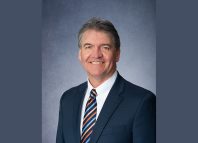Several female candidates, all Democrats, have good chances to win seats in Congress.
By Chris Comisac
Bureau Chief
Capitolwire
HARRISBURG (May 16) – When you’ve got 84 candidates and 21 contested primaries for 18 congressional seats, there are going to be lots of prospective candidates looking for other things to do with their time come today, a day after the primary election.
Seven of Pennsylvania’s 18 seats are open, and that generated plenty of interest from candidates of both major political parties, although more so by Democrats.
On the Democratic side of the ledger, there were eight primary contests with at least three candidates.
The most candidates (10) were found in the 5th Congressional District, which saw Mary Gay Scanlon win her party’s nomination with about 28.4 percent of the total vote, according to unofficial election results.
The 5th is one of those open seat districts (with much of it having been previously represented by GOP U.S. Rep. Pat Meehan, who recently resigned following sexual misconduct allegations) and Scanlon will face off in November against Pearl Kim – the only Republican candidate in the 5th on Tuesday – for a seat many expect the Democrats to easily win.
The largest crowd of GOP candidates was in the very Republican 13th District (which, for the most part, is the old 9th District from which GOP Rep. Bill Shuster is retiring), and it appears physician John Joyce – with just shy of 22 percent of the vote – outlasted seven other candidates that featured a sitting state senator (Sen. John Eichelberger, R-Blair) and a sitting state representative (Rep. Stephen Bloom, R-Cumberland). Joyce will face Democrat Brent Ottaway in November.
Unlike her GOP colleagues, state Rep. Madeline Dean, D-Montgomery, was successful with her congressional bid, easily dispatching – with 72.6 percent of the vote – former Congressman Joe Hoeffel and gun control activist Shira Goodman in the Democratic primary for the 4th Congressional District. Dean will face Republican Daniel David in the general election for the open seat, which, like the 5th, Democrats are expected to win.
State Rep. Greg Vitali, D-Delaware – the only other sitting Democratic state legislator to have a go at Congress – was a non-factor in the aforementioned 5th District Democratic primary won by Scanlon.
A few more Republican state lawmakers went at it in the GOP primary for the fairly Republican 14th District, which contains a significant chunk of the old 18th District, which state Rep. Rick Saccone, R-Allegheny, lost to Democrat Conor Lamb in a recent special election to fill the short-term vacancy left by the resignation of GOP U.S. Rep. Tim Murphy.
Saccone lost the district again, this time to primary opponent state Sen. Guy Reschenthaler, R-Allegheny, who received nearly 55.3 percent of the vote. Reschenthaler will face Democrat Bibiana Boerio, who got roughly 44.3 percent of the vote in a four-way primary.
Two other open seats featured somewhat unpredictable contests – well, at least three of the four primaries in the two districts had the potential for some volatility, what with a total of 14 candidates between the two parties .
In the Lehigh Valley 7th District, which contains portions of the old 15th District from which GOP U.S. Rep. Charlie Dent just resigned, Republicans have a nail-biter between Dean Browning and Marty Nothstein, with Nothstein appearing to have won with 50.5 percent of the vote (16,000 votes) to Browning’s 49.5 percent (15,696 votes).
If those figures hold, Nothstein would face in the general election Democrat Susan Ellis Wild, who emerged from a six-way contest with 33.3 percent of the vote (15,001 votes), with the next closest candidate being John Morganelli (13,565 votes, or 30.1 percent)
And the open 9th District, which has a decent chunk of the old 1tth District from which GOP U.S. Rep. Lou Barletta is retiring (and maybe for a new job in the U.S. Senate), produced an easy primary win for former state Revenue Secretary Dan Meuser, who got nearly 53 percent of the vote. It was only slightly closer on the Democratic side, with former state Agriculture Secretary Dennis Wolff pulling 40.7 percent of the overall Democratic primary vote. So, the 9th District general election will feature a matchup between two former state cabinet members (but for different governors).
Here are the rest of the apparent general election matchups:
1st District: GOP U.S. Rep. Brian Fitzpatrick v. Democrat Henry Scott Wallace
2nd District: Democratic U.S. Rep. Brendan Boyle v. Republican David Torres
3rd District: Democratic U.S. Rep. Dwight Evans v. Republican Bryan Leib
6th District: Republican Greg McCauley v. Democrat Chrissy Houlahan
8th District: Democratic U.S. Rep. Matt Cartwright v. Republican John Chrin
10th District: GOP U.S. Rep. Scott Perry v. Democrat George Scott
11th District: GOP U.S. Rep. Lloyd Smucker v. Democrat Jessica King
12th District: GOP U.S. Rep. Tom Marino v. Democrat Marc Friedenberg
15th District: GOP U.S. Rep. Glenn Thompson v. Democrat Susan Boser
16th District: GOP U.S. Rep. George Kelly v. Democrat Ron DiNicola
17th District: GOP U.S. Rep. Keith Rothfus v. Democratic U.S. Rep. Conor Lamb
18th District: Democratic U.S. Rep. Mike Doyle, unopposed
Also noteworthy is that seven of the candidates in the 18 districts are women (all but one are Democrats), with at least one woman guaranteed to be elected to Congress (since the 5th District features a matchup of two women) and three others in districts that favor the Democratic candidate.
Further questions may be directed to Jack Phillips, RCPA Director of Government Affairs.

















